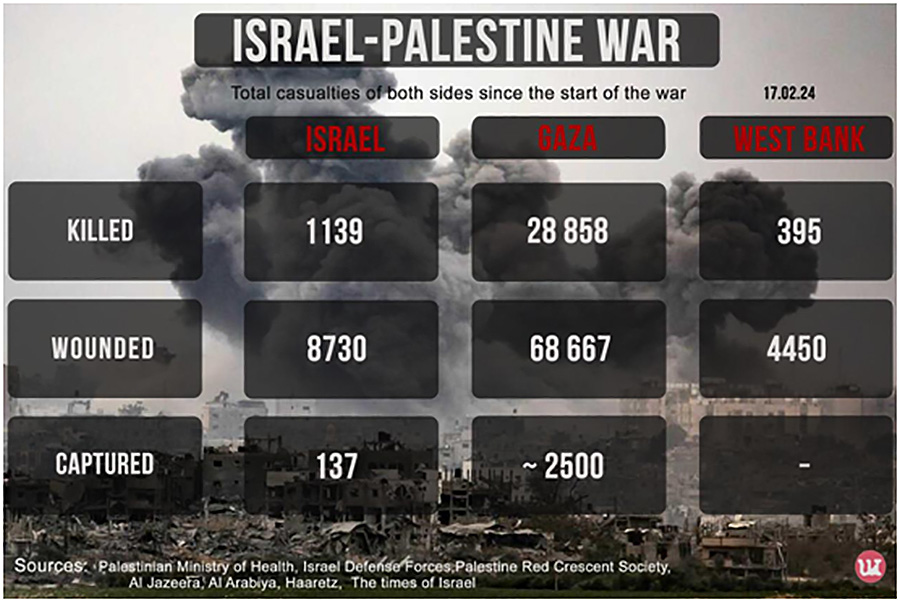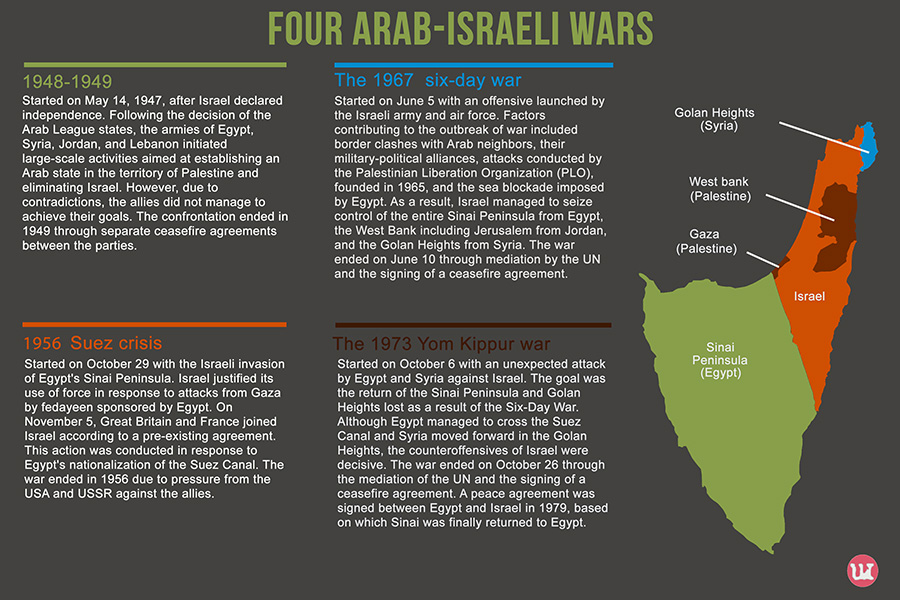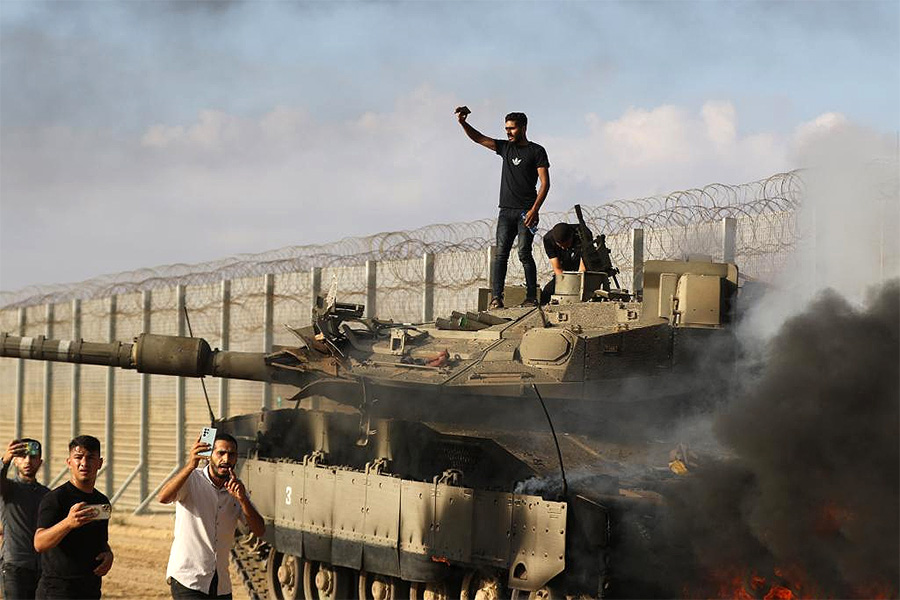Qatar’s “Al Jazeera” TV channel recently published a video giving the names of 11,500 children under the age of 17 who died as a result of the war in Gaza.
Approximately 35 seconds were allocated to represent the names of babies who had not yet reached one year of age, while the subsequent 4 minutes were dedicated to the names of children under 10.
According to the Ministry of Health operating in Gaza, from the beginning of the war until February 17, 2024, 28,858 Palestinians were killed and 68,667 were injured. Additionally, it is reported that 400 Palestinians were killed as a result of clashes that took place on the West Bank of the Jordan River.
The Special Services of the USA and the Israeli Defense Army claim that they have “managed to eliminate” approximately 10,000 representatives of Hamas. According to the Israeli press, the number of hostages reaches 2,500.
 The Israeli casualties, in comparison to the Palestinian side, are relatively moderate. Overall, after the offensive on October 7th, the death toll among Israelis is 1,139. Additionally, Hamas has taken 248 hostages to Gaza following the attack. If we consider the number of people released during the December ceasefire and the number of deaths during the conflict, 137 hostages are still under the control of Hamas.
The Israeli casualties, in comparison to the Palestinian side, are relatively moderate. Overall, after the offensive on October 7th, the death toll among Israelis is 1,139. Additionally, Hamas has taken 248 hostages to Gaza following the attack. If we consider the number of people released during the December ceasefire and the number of deaths during the conflict, 137 hostages are still under the control of Hamas.
Regarding the losses in the Israeli Defense Army, according to official data, 564 soldiers have died, with 277 deaths occurring after the launch of the Israeli ground operation. Overall, the number of injured Israelis is 8,730, with 6,125 of them being soldiers.
Despite the huge disparity in losses suffered by the parties, it is a fact that Hamas, through its offensive on October 7, inflicted an irreversible blow to the foundations of the security system of the only Jewish state, known for its legendary intelligence and military capabilities, as the Israelis like to emphasize.
Israel responded to this with the means, which were almost unanimously labeled as genocide by all Arab and Muslim states. Meanwhile, the South African Republic is striving to bring Israel’s military and political leadership before international justice.
The only question that arises after receiving information about such casualties is: Why does Israel resort to using disproportionate power?
The leadership of Hamas knew quite well that a missile launched from Gaza would be followed by 101 from Israel. They were aware of this reality because Hamas has faced such situations since its establishment in 1988. They also knew that every Israeli missile strike aimed at densely populated settlements would result in a large number of casualties among the civilian population.
From political leaders to ordinary “Mujahideen” within the Palestinian movement, everyone clearly recognizes these simple realities. However, the policy adopted for the “liberation” of Palestine remains unchanged.
The policy is not changing because Hamas has calculated and still relies on fostering generational hatred. Every Israeli bullet that kills a Palestinian deepens anti-Israeli sentiment. Every Israeli missile that turns a Palestinian house into ruins increases the thirst for revenge to destroy Israeli homes. Each Israeli aerial bomb that blows up an entire Palestinian neighborhood instills in the surviving children the desire for revenge for the death of their parents resulting from that same bombing.
It goes without saying that the Arab widow would raise her orphaned son with the ideas of revenge and struggle against injustice. Moreover, as he grows up, the accumulated anti-Israel sentiment among the public would likely further harden the perceptions of the young Palestinian.
It was these simple, but ignored realities for years, that led ordinary Palestinians to join the ranks of Hamas.
The society formed as a result of incessant wars with the Israeli since the 1930s should view every attack by the Hamas movement on Israeli army bases as an opportunity to strike another blow to the enemy. They should accompany those going to the battlefield with prayers and blessings.
It is no coincidence that Article 7 of the 1988 founding charter of Hamas, which speaks of fighting the Jewish state “to the end”, quotes an Islamic tradition in which the prophet Muhammad said:
“The Day of Judgement will not come until the Muslims fight against the Jews, until a Jew will hide himself behind a stone or a tree, and the stone or the tree will say: “Muslim, or the servant of Allah, there is a Jew behind me, come and kill him”
All of this is well recognized by Israel. However, only Benjamin Netanyahu and the other ministers of his nationalistic government, particularly the Minister of Finance, Bezalel Smotrich, and the Minister of National Security, Itamar Ben-Gvir, have used these realities as justification for supporting the ongoing massacre in Gaza.
The aforementioned officials, in addition to the primary objectives set forth for the Israel Defense Forces—such as rooting out Hamas from Gaza and securing the return of hostages—also advocate for the displacement of Arabs from Gaza and the establishment of Jewish kibbutzim.
In addition, Netanyahu’s announcement, stating that one of Israel’s primary objectives in Gaza is the “deradicalization” and “demilitarization” of the region, provides a more comprehensive perspective.
The extremely tough Israeli response to the October 7 offensive is reminiscent of stories found in Jewish holy books that recount the collective punishment carried out by King Saul against the people of Amalek city. It was deemed a “divine order” given to Saul, as the Amalekites, during the times of Moses, dared to take up arms against the “chosen people” who had exited Egypt.
“At the time when the Holy One, Blessed be He, said to Saul: “Now go and attack Amalek and proscribe all that belongs to him; do not pity him, but kill men and women alike, infants and sucklings alike, oxen and sheep alike, camel and donkey alike” [I Samuel 15:3], Saul countered and said: Now, if on account of one life that is taken, in a case where a slain person’s body is found and the murderer is unknown, the Torah said to bring a heifer whose neck is broken to a barren valley, in the atonement ritual described in Deuteronomy 21:1–9, all the more so must I have pity and not take all these Amalekite lives. And he further reasoned: If the men have sinned, in what way have the animals sinned? Why, then, should the Amalekites’ livestock be destroyed? And if the adults have sinned, in what way have the children sinned? A Divine Voice then came forth and said to him: “Do not be overly righteous” [Ecclesiastes 7:16]”.
May be in the current conflict in Gaza, the Israeli government is striving not to be “overly righteous” as depicted in the biblical narrative.
However, Israelis are well aware that the roots of the October 7 offensive date back to the early 20th century, specifically to the period of mass Jewish immigration to the territory of Palestine.
Since 1947, when the territory of Palestine (subject to the British Empire) was divided into Jewish and Arab parts based on UN Resolution 181, and the establishment of the Jewish state was announced in 1948, the perception of “Israel as a foreign entity, akin to a cancer in the heart of Arab lands” has been formed and strengthened in the Arab world.
This is why the Arabs were unable to comprehend why lands considered “Arab and Islamic” should be conceded to the Israelis by the decision of third parties. This viewpoint, which continues to prevail within Arab society regardless of the positions of some Arab leaders regarding Israel, remains unchanged.
These perceptions, which have served as the foundation for the Arab-Israeli conflict, will not dissipate or change significantly until an Arab state is established on even a small piece of land in Palestine. This factor is recognized and emphasized by both Israel’s ally, the USA, and the European states. However, despite this awareness, Netanyahu’s government stubbornly refuses to act accordingly.
The current leadership of Israel is aware that, after the four major wars of the last century between Israel and its neighboring Arab states (the 1947 war, the 1956 Suez Crisis, the 1967 Six-Day War, and the 1973 Yom Kippur or October War), the people of Palestine are the only ones in the Arab world willing to engage in direct conflict with Israel in pursuit of the liberation of Arab lands.
 Hence, as long as this willingness persists within Palestine, Israel will not rush to resolve the conflict. Instead, it will continue to label all clashes as “terrorism” which are subject to eradication.
Hence, as long as this willingness persists within Palestine, Israel will not rush to resolve the conflict. Instead, it will continue to label all clashes as “terrorism” which are subject to eradication.
All of this serves to emphasize that the massive and devastating bombings of Gaza are a response to the irreversible blow to Israel’s security on October 7th. Moreover, the Israelis aim to eliminate the deep-seated hatred that has accumulated over 76 years of occupation of Arab lands and intensified after each military conflict simply by uprooting the population of the region.
In other words, the objective is to deliver such an irreversible blow that will compel the Palestinians to abandon their aspirations of achieving statehood through armed conflict.
In conclusion, it can be stated that as long as Israel continues to employ disproportionate force, Hamas will persist, and as long as Hamas exists, Israel will continue to utilize disproportionate force.

Մասնագիտությամբ միջազգայանագետ եմ։ Ձգտում եմ մարդկանց ապահովել տեղեկատվությամբ՝ նպատակ ունենալով թեկուզ չնչին ներդրում կատարել անցյալից ու ներկայից տեղեկացված հասարակություն կերտելու գործում։ Հետաքրքրությանս ոլորտներն են կրոնները, հատկապես իսլամը՝ իր շիա ուղղությամբ, պատմությունն ու պատերազմի մասին ժողովուրդների ընկալումները։
